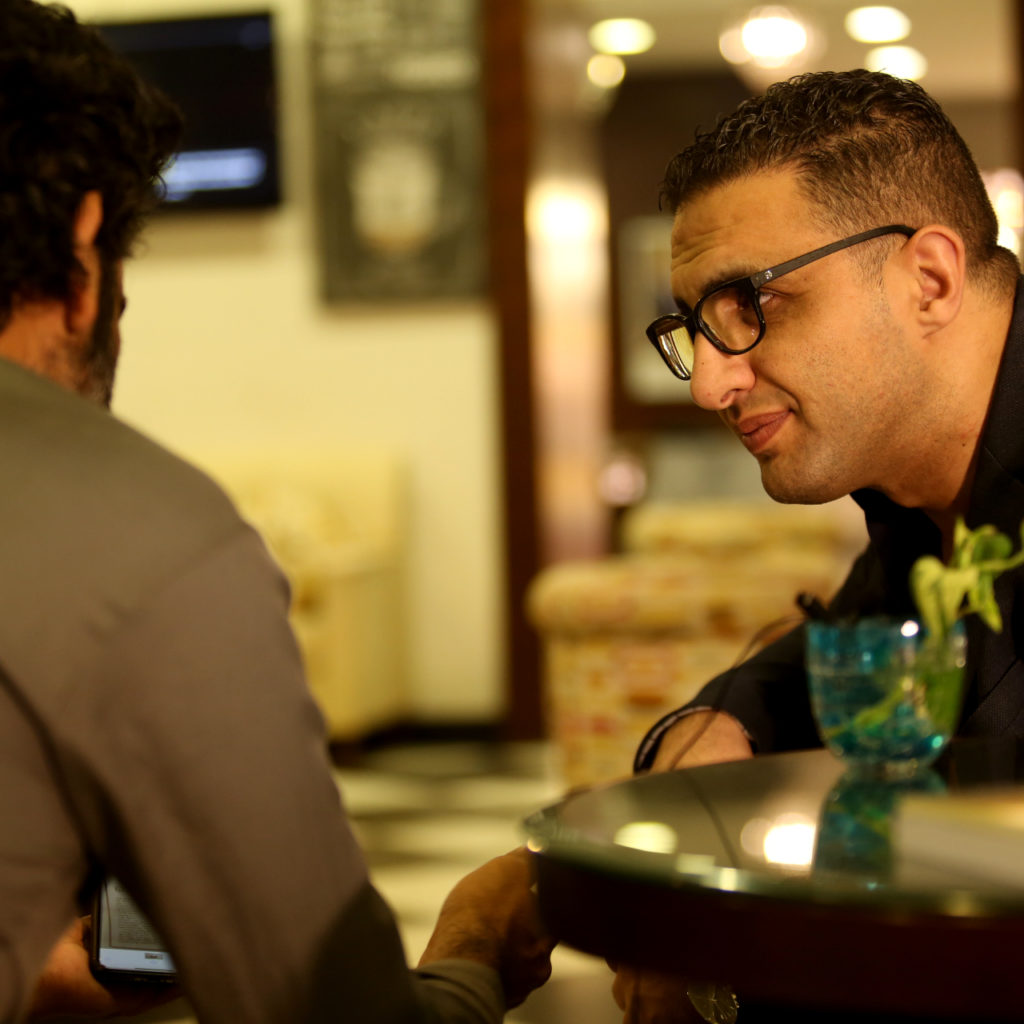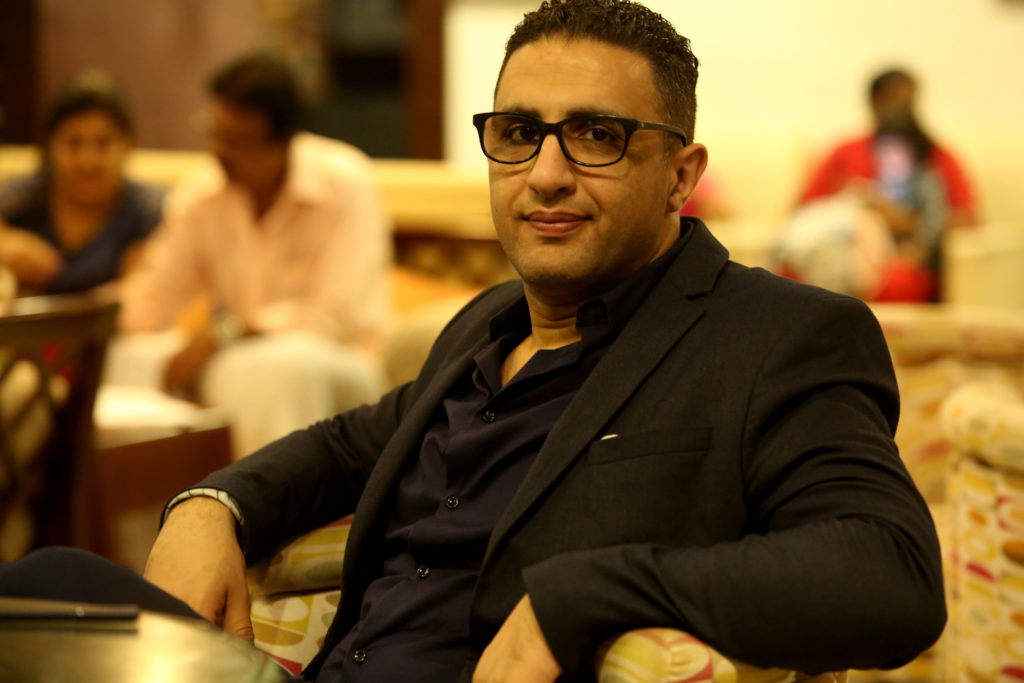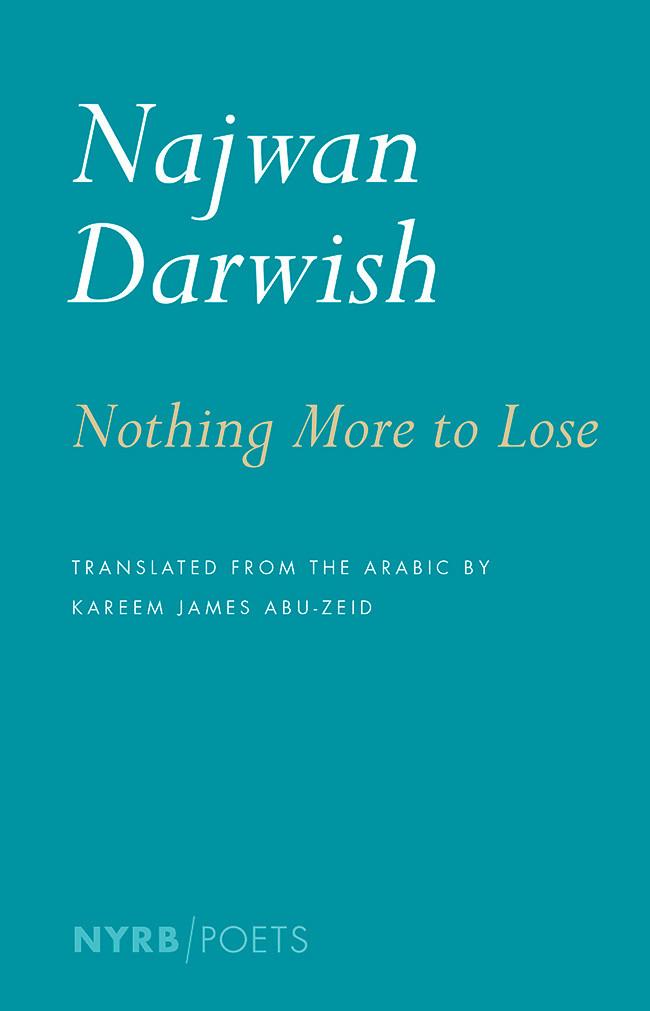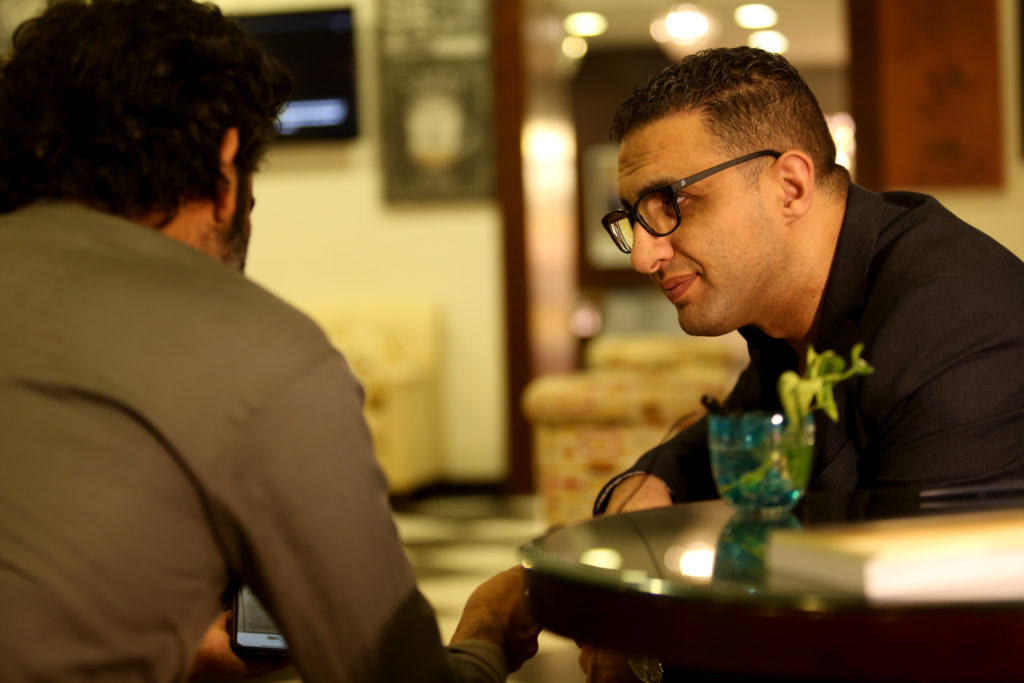‘More Indian Literature Should be Translated into Arabic’

NAJWAN DARWISH, well-acclaimed Arabic poet from Palestine, talked to Muhammed Noushad in 2019 on his poetry and politics. Photographs by Shafeeq Thamarassey.

Najwan Darwish has published eight poetry books and has been translated into over 20 languages including English and Spanish. He is also the cultural editor of Arabic daily Al Arabi Al Jadeed. He has been traveling across the world to recite his poems and talk about his favourite themes and haunting concerns. Coming from the occupied homeland of Palestine, deep anguish and sense of liberation is etched in his metaphors and choice of allegories. But he chooses to write about his personal life, rather than being explicitly political. However, he is not worried about being called a political poet. Chilean poet artist Raul Zurita once praised Najwan: ‘I’ve seen nothing of what I believed. But if a God exists it is the same God for me and Najwan Darwish’. New York Review of Books called him “one of the foremost Arabic-language poets of his generation”.
This is an edited excerpt from a long conversation MUHAMMED NOUSHAD had with Najwan Darwish, when they met at Calicut in 2019, and later through e-mails.
What is poetry for you: a means of resistance or a tool to claim identity or manifestation of your inner feelings? How do you reflect upon yourself as a Palestinian poet?
To be honest, I don’t raise such questions to myself. The duty of a poet is to write poetry well, to write good poems, much more than to use poetry for anything else. This is the work of critics. As they don’t write poems, they have enough time to talk about poetry. In my case, I have never thought of my journey as a poet. I think it is too early to start reflecting on my poetic journey. I am in the middle of the storm and I am trying to find my way in the storm. I am not in a position of giving conclusions or even reflecting on my so-called accomplishments or experiences.
Your poetry has been translated into around 20 languages. Your English translator Kareem James Abu-Zeid praised your diversity, saying that he often thought he’s translating different poets when he worked on your poems. How do you accomplish such diversity of styles within the same genre?
I can analyze two things. First, ours is a complex world and it is really complicated. And diversity is somehow the product of that complexity. Second, it may appeal to the idea of the otherness. In my work, I am trying to be the other, also. And then, to be the other of the other. And this may be interpreted on the perception or the style of the subjects I choose. This may be what he meant when he said he felt like he was translating different poets, when he translated my works.
When you say the voice of the other, what do you actually mean by the other?
The other is what is not defined as your ‘self’, or part of your ‘self’. To be the other of where you stand. It could be on a personal level, or on a collective, or class, cultural or political levels; it could be in many things. Because most of the people think they are special and the other is someone else. In my perception, I am the other. And when I become the other, I would try to become the other of the other. And it is an endless process and endless being. I think it would definitely enrich poetry, and arts in general. It would give a different dimension.

Some critics have noted that there is a cosmopolitan self in your poetry. In spite of your Palestinian identity you also bring in many other identities to your poems. Is this also part of the complexity you were referring to?
Anyway, my work in general is an autobiographical work. I am not a cultural poet. Of course I read, I do my homework and research. But my reflections are the reflections of my very personal life and I am living these things. I do belong to the identities I am writing about. I don’t write about something that I don’t belong to. It is not a cultural fantasy as much as it is a life experience, also it is heritage. Don’t forget that I belong to a country, a culture which has a huge history, it is a place where great mixes are happening through the Arabic identity and the Palestinian identity. And the place I belong to, which is Jerusalem, is also a place of different faiths and different ethnicities and histories. So this very much belongs to my personal experience.
You have told you are not raising explicit political questions in your poetry.
No. what I am saying is a political stance. Whatever we do is political. The only thing is that political poetry has bad reputation as being propaganda or writing with agendas or so. But I wouldn’t say my work is not political. I am proud to be a political poet, if I am. But my approach of doing politics in my poetry is never the Soviet way.
You have been involved in organizing the annual Palestinian Literature Festival (PLF), with the motto, “the power of culture over the culture of power”. How important is literature for the cause of Palestine?
Literature is important for all causes. Any cause needs its narrative, its voice and its literature. Palestine is a major cause in the world. We use literature for different reasons. The slogan of PLF is a sentence by Palestinian thinker Edward Said, who has had some great influence on this festival. Art and literature, particularly language in general, could be and should be used for the cause of people. Literature is a tool of defending life.
At the Kerala Literature Festival, you talked about the vast presence of Indians in the Gulf countries and its potential cultural influence. Could you elaborate your point?
In my opinion, Arabs and Indians have a shared history of probably 2000 years. I am not very happy about the modern history, however. I am not very proud of what is happening now on the ground. As an Arab, I am expecting a better relationship with India and its people. Frankly, I also expect better treatment of Indian workers in the Gulf countries by Arabs. This is one of the things that strikes me about the Gulf as our Indian brothers are maltreated. I think literature has to do something about it. In improving the quality of life and attitudes. For this reason I am interested in translating Indian literature into Arabic, so that our readers would receive the Indian humans with all his or her dimensions. Not just to see him as a worker; you should see the whole human, the whole civilization in this man or woman. I have been doing this translation work as a cultural editor of a major Arabic daily newspaper. We publish Indian authors and translate their works from time to time. This is an ongoing process, I keep doing this and I hope to work more on that in the future and to bring different Indian authors into Arabic languages, from Kerala and other languages of India.
However, despite a long tradition of Indians supporting Palestine, the current right wing government of India is in alliance with Israel.

I don’t think your prime minister – I never remember his name – represented India. The ugliest image I saw last year was his picture with Israeli criminal Netanyahu on the beach. I don’t see him as a representative of the Indian people. It happened in many places of the world that the politicians do not represent their people’s sentiments and I think your prime minister is one of them. And the relationship between this government and Israeli regime is like a gangster relationship. Israel for me is not a country, it is a criminal corporate company run by gangsters. Not the kind of good gangsters you get to see in movies. Very cheap gangsters like Netanyahu and Leiberman. Hopefully they would make this company bankrupt. I always differentiate between nations and their corrupt politicians. It happens that sometimes stupid politicians represent nation states for a few years and I hope these years wouldn’t be so long for our brothers and sisters in India.
You come from the Palestinian city of Jerusalem, which the Israeli state declared as its capital, a couple of years ago. What did you feel then?
Israelis are so rude that they can declare any city as their capital. They are thieves with imagination. Whatever they say, I don’t take them seriously. I wouldn’t think of it as something that would remain in history. My part of the world has received a lot of invaders and it has managed to kick most of them out. I think this is a nightmare and one day we would wake up from this nightmare. I don’t know how, but I still have some hopes.
How does your generation of Palestinians look at the West Asian conflict? Particularly about the possible solution – there is the two-state-theory and the one-state-theory of coexistence between Arabs and Israelis.
The new generation is better than the old generation. I trust my generation and the younger generation more than I trusted the older generation. We have a kind of realistic vision and perception of the colonial nature of the Israeli regime and occupation. We perceive Israel as a colonial regime. And we don’t think in terms of solutions. Solution is not our word. We think more of liberation. I want to liberate my country. The solution is the language of politicians around the world whose work is to cook solutions, and usually they cook corrupt solutions. As a writer or so as someone under occupation, it is not my duty to think of a solution. My duty is to think of my freedom, and the freedom of my people. This is what we should all do.
[A Malayalam edition of this interview was published by Dool News in June 2019.]